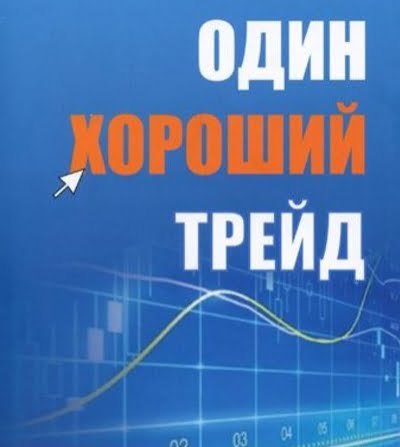Since stock trading is an entrepreneurial profession, which requires, so you risk your money, to make money, it is worth adhering to a rational conservative approach in relation to the markets. Following are some tips for traders, who are preparing to plunge into the pool of trade – with our main focus on preserving capital (and reason), and not because, to get rich quicker.
1. Don't rush to trade.
Markets will exist tomorrow, next week, next year and next decade. Don't worry about, what, while doing testing and mock trading without real money, you can miss the movement, once in a lifetime. There are always opportunities somewhere – you have nothing to lose, investing your time in education and training.
2. Don't trade for no reason.
When you, finally, start trading, don't trade just because, What do you feel, what should do it, or out of boredom, or under the influence of a gust. Risk your money, only when you see the facts, confirming the existence of a favorable trading opportunity, and you have a plan, with which you can take advantage of this opportunity.
Besides, do not trade for the sake of “to sweep”. Having suffered a significant loss or a whole streak of losses, you may be tempted to trade larger and more often, to get your money back as soon as possible. Needless to say, that such a course of action almost inevitably leads to an even greater loss of money.
3. Don't leverage just because, что он есть.
No law, proclaiming, that in each market you should trade on margin. The more leverage you use, the more you increase your risk. Левередж – this is a tool, which will benefit you, only if you know how to use it. And to learn, need time.
4. Beware of Early Success.
A scattering of successful deals early in your career is unlikely to be an unlikely event.. This is one of those little jokes, which the market plays with us – at the very beginning we knock off some good deals and gain the conviction that, what we – brilliant players in the market.
Say, what are newbies lucky, and this applies to trading the same, like everything else, so don't get too overconfident. Many traders, who lost money early in their careers, grateful for this lesson – in retrospect – because he gave them a realistic vision of the problems and risks of trading.
But, even with experience, hard to deal with the ups and downs, coming along with winning and losing streaks. Trader, having a streak of luck, often unnecessarily increases the size of your trade – just on the eve of a big losing trade. And even though it's hard, strive to accept and fail, and winnings dispassionately.
5. Work by yourself, think for yourself.
“The essence of knowledge is experience, and the essence of experience is independence”. This quote from Books Уайта “Former and future king” (T.H. White, The Once and Future King) succinctly describes most of that, what is the skill of exchange trading.
Our culture teaches us to think to some extent., that there is a product for every problem or need, medicine or service, which we can buy, and which will enable us to achieve our goals. And although sometimes you really want to rely on someone's trading ideas, research, recommendations or systems, мы нашли, that most of the progress happens then, when you do the analysis yourself, form your own hypotheses and rely on your own decisions.
Certainly, learning about other people's work is part of a trader's education, and there are many publicly available ideas, which become components of a successful trading plan. (Least, learning will make you an informed consumer of other people's ideas.) But there are no shortcuts. Many experienced traders say, that even a successful trading system won't work, if it is not performed correctly, and the reality is, that it is very difficult to completely trust something else – especially, if you do not fully appreciate all the nuances and do not quite understand, why does this system work, and when she can refuse.
Such confidence in a trading idea comes, usually, after that, how you do all the work yourself and understand the concept from its very foundations. Trade, using ideas, which you understand, and which make sense to you.
6. If something seems too good, to be true, I guess, and there is.
Whether it's a trading system, “верная” information or indicator, Total, which promises a lot of money and / or almost no risk, should be avoided. There are no shortcuts in trade – it's a tough business, which turns out to be too tough for many highly educated and successful professionals from other fields of activity. There is no such thing as a trading strategy., which brings success in 95% time, allows you to earn a six-figure amount in a month and at the same time has no risk of loss.
Be a skeptic. Find confirmation of every trading idea, which interests you, включая и те, which you make up yourself.
7. Engage in trading ideas, which you can objectively determine, explore deeply and test intensively.
Unclear trading ideas – for example “buy, when the market is oversold, and sell, when you have a decent profit in your hands” – give uncertain results. Весь фокус в том, to turn market observations and hypotheses into specific rules, which you can check on past price data.
For example, what is meant by the word “перепроданный”? It can mean everything, anything. An example of an objective rule would be the following: when the market makes lower lows and lower closing prices for five consecutive days. Will this definition turn out to be a good buy signal or not? – question, which you must answer objectively through research and testing.
8. Keep a transaction log and regularly review your performance.
Regardless of your past or approach – investment, short-term trading, technical, quantitative or fundamental analysis – almost all good traders, with whom we spoke, соглашаются в том, which is extremely helpful to keep a log of all your trades and learn from past experiences.
9. Be patient.
Anyway, trading in financial markets is not so easy, as it may seem at first. Требуется время, to master any discipline or profession. Can you expect to be a good musician, by a doctor or engineer in one single year?
Beyond the natural learning period, trade is also a profession – unlike music, medicine or law – in which on any given day you can lose money, rather than make them. “Salary” not guaranteed here.
Success comes from hard work. Some traders have been working for years without profit., прежде чем, finally, get on their feet. Remember, that the markets won't run away from you.
10. Have sufficient capital / know when to stop.
Insufficient capitalization dooms most new businesses, and trading in financial markets – not an exception. Lack of sufficient money to trade calls into question every second item on this list..
Besides, when do you start trading, do it at an even more conservative capital level, than your projected minimum. Start slowly. For example, if you have defined, that you have enough money in your trading account, to pursue a specific trading strategy, using lots on 500 shares below 30 Dollars, try to start trading with 100 or even with 50 shares at a time until then, until you get comfortable with your strategy, execution process, brokerage firm and psychological tasks, real money risk. Then slowly increase the size of your trades.
A source: http://www.pfgfx.ru/download/basics_0705.html


